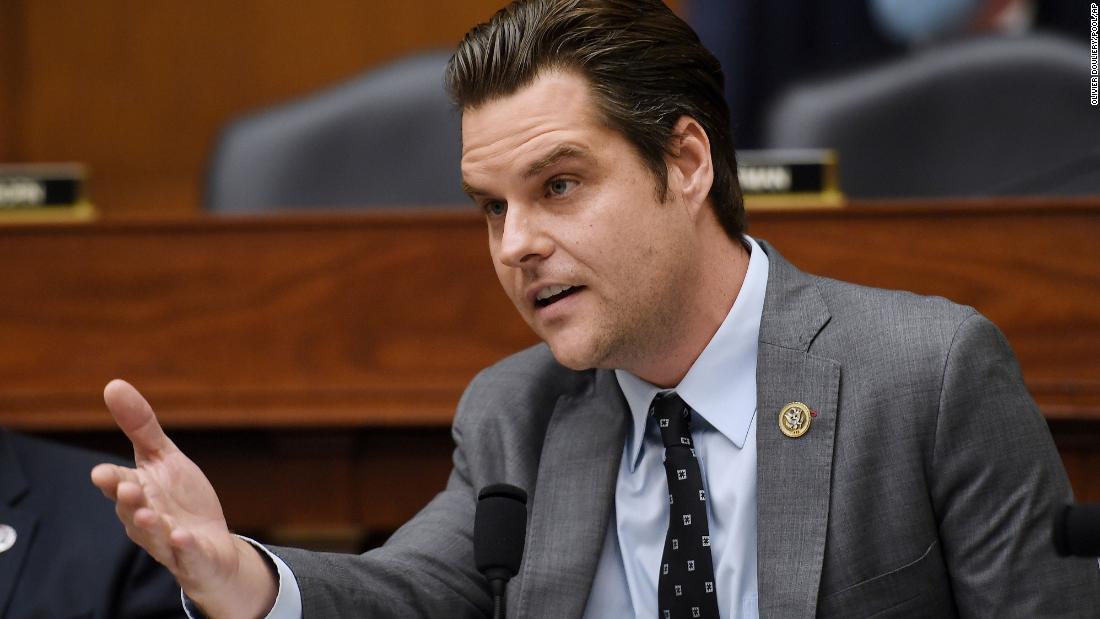Republican Congressman Matt Gaetz is currently under intense scrutiny, not just for his political actions but also due to serious allegations against him, including an ongoing Justice Department investigation into a potential sexual relationship with a minor. In a bid to deflect the growing concerns, Gaetz recently tweeted that he and his family are victims of an organized criminal extortion scheme, claiming a former DOJ official demanded $25 million while threatening to damage his reputation.
This alarming figure raises questions, especially in light of the Gaetz family’s considerable wealth. According to Forbes, Matt Gaetz and his parents are estimated to have a combined net worth of around $30 million, largely stemming from their prominence in Florida politics. While Matt Gaetz himself has reported personal assets ranging from $235,000 to $625,000 on his latest congressional financial disclosure, much of the family wealth appears to reside with his parents, Don and Victoria Gaetz.
Don Gaetz, a former state senator, has carved out a significant reputation in both business and politics. His financial disclosures reveal a net worth of about $29.6 million as of June 2020, a figure he reported to the state ethics commission. This wealth is derived from a diverse portfolio that includes substantial investments in publicly traded stocks, an array of real estate, and significant stakes in private enterprises. His assets include 13 real estate properties, multimillion-dollar investments, and personal belongings valued at around $375,000, such as antiques and a luxury 2013 Mercedes-Benz S550.
Before entering politics, Don Gaetz enjoyed a successful business career. After graduating from Concordia College in Minnesota, he worked as a hospital administrator in Wisconsin and Florida. In 1983, he co-founded Vitas Healthcare, a hospice provider that expanded significantly over the years. Under his leadership, the company grew to become the largest hospice provider in the country, employing over 6,000 individuals. In 2004, Vitas was sold to Roto-Rooter for $406 million, marking a major achievement in Don Gaetz’s business career.
Transitioning into politics, Don Gaetz served as the superintendent of the Okaloosa County School District before winning a seat in the Florida legislature. He eventually rose to the position of state senate president, serving from 2012 until 2014. His political career laid the groundwork for Matt Gaetz’s own entry into politics.
Matt Gaetz began his political journey in 2010 when he won a special election for the Florida House of Representatives. At just 27 years old and three years after graduating from law school at William & Mary, he raised nearly $479,000 for his campaign, aided by donations from high-profile supporters like Jeb Bush and MSNBC host Joe Scarborough. His narrow victory in the Republican primary highlighted his potential as a rising star in Florida politics.
Since entering the U.S. House of Representatives in 2016, Matt Gaetz has distanced himself from the traditional Republican establishment that initially supported him. He has become a vocal advocate for Donald Trump, notably voting against certifying the 2020 election results on January 6, the same day as the Capitol riot.
While Don Gaetz is no longer active in the Florida legislature, he continues to serve the public as a board member of a nonprofit organization that oversees funds for Florida counties affected by the Deepwater Horizon oil spill in 2010. This role requires him to file detailed financial disclosures, revealing the extent of his considerable assets and liabilities.
In these disclosures, Don Gaetz highlights a significant portion of his wealth as tied to real estate investments. He claims his properties—including several coastal homes in Florida’s panhandle, a New York City apartment, and various lots across four states—are collectively worth $14.6 million based on realtor estimates. He also maintains approximately $6.8 million in cash accounts and investments in three privately held companies, valued at around $4.6 million. These companies mainly focus on senior home care, reflecting a commitment to health and wellness.
Additionally, Don Gaetz holds stock in around 100 different companies, alongside investments in funds and retirement accounts totaling nearly $3 million. His portfolio features shares in notable corporations like Uber, Coca-Cola, and Raytheon. With only $15,500 in liabilities, mostly from a credit card, Don Gaetz appears to enjoy robust financial health.
In contrast, Matt Gaetz’s personal financial situation appears less affluent. His recent disclosures reveal limited personal wealth compared to that of his family. He lists ownership of undeveloped lots in Florida valued between $19,000 and $110,000, as well as retirement accounts estimated at $65,000 to $150,000. Interestingly, one of his significant assets aligns with his father’s: a stake in CareGivers Inc., valued between $100,000 and $250,000.
Despite the Gaetz family’s considerable wealth, it seems much of this financial success has yet to benefit Matt Gaetz directly. This situation raises questions about inheritance and financial independence, especially as he faces the current turbulence surrounding his political and personal life.
The intersection of Matt Gaetz’s rising political career and his family’s substantial wealth creates a complex dynamic. On one hand, he benefits from the established reputation and resources of the Gaetz family, which undoubtedly support his political aspirations. On the other hand, his recent legal troubles highlight the potential downsides of wealth and influence, as investigations and accusations threaten to overshadow the family’s legacy.
In summary, the financial landscape surrounding Matt Gaetz and his family reflects a mix of political clout, business savvy, and considerable wealth. As he confronts challenges in both legal and political arenas, the legacy of the Gaetz family may face tests they never anticipated. The ongoing developments will likely continue to draw public interest as the narrative of wealth, power, and accountability unfolds in the context of American politics today.





